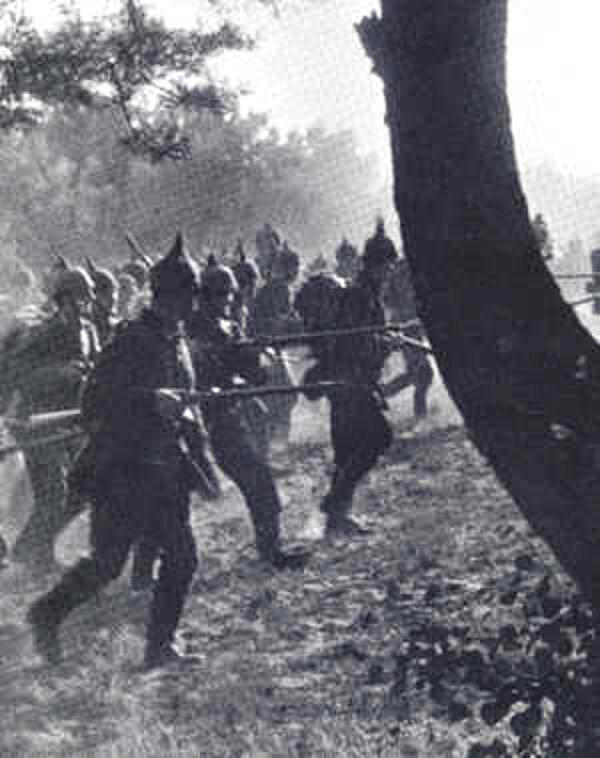The Battle of Mons
The Battle of Mons was the first major battle of World War One, and was the only real ‘battle of movement’ to take place during the war before trench warfare took over.
The battle was prompted by the invasion of Belgium by German troops on 3rd August 1914, which led to British troops from the British Expeditionary Force (BEF) crossing to mainland Europe on 14th August. Led by Sir John French, the BEF were already behind schedule when they reached Belgium and forced the French to maintain a cautious approach until they met up with the French Fifth Army (led by General Lanrezac) at Charleroi.
On 22nd August, the BEF found cavalry patrols from the German First Army and engaged them, before making plans to attack the German forces that he assumed to be nearby. However, British intelligence suggested that French remain cautious as there was no evidence to suggest the German forces were small in numbers.

French responded by ordering his men to dig defensive positions near the Mons Canal, which surprised the nearby German First Army commander, Kluck. Having just engaged Lanrezac (the Battle of Sambre), Kluck was already pursuing the French army south and decided he would take on the BEF.
The battle commenced on 23rd August with French deploying his men across a 40km front. Initially, the odds seemed against the BEF as the British had just 70,000 men and 300 artillery guns, while the Germans had 160,000 men and 600 artillery guns.
However, the Germans got off to a poor start when they realised the men described as “contemptible” by Kaiser Wilhelm II were actually professional soldiers. In fact, the soldiers did so well with their standard Lee Enfield rifles that they convinced the Germans they were firing with machine guns. German intelligence decided they must have 28 machine guns were battalion at Mons, which was far removed from the two they actually possessed. As a result of this skill, Kluck redefined the BEF as an “incompatible army”.
"Well entrenched and completely hidden, the enemy opened a murderous fire...the casualties increased....the rushes became shorter, and finally the whole advance stopped....with bloody losses, the attack gradually came to an end."
A German account of British troop fire at Mons
As a result of the swift and impressive attack, the XI Brandenburg Grenadiers lost 25 officers and 500 men when they attacked the 1st Battalion of the Royal West Kent Regiment, while the 75th Bremen Regiment lose five officers and 376 men in a single attack.
By the evening of the first day of battle, French realised that the German army was significantly bigger than they had expected, and Lanrezac had also quietly retreated from the battleground with his army. As a result, French ordered his army to retreat and left the Germans nursing their many wounds.
While it took Kluck a number of days to sort his injured soldiers, on 26th August he launched a further attack on the rearguard guarding the retreat of the BEF, which resulted in 8,000 casualties at the Battle of Le Chateau.
French hoped to withdraw his army to the coast but Lord Kitchener stated that this would not be possible, insisting instead that the British stayed in contact with the French army as they retreated to the Marne River.
MLA Citation/Reference
"The Battle of Mons". HistoryLearning.com. 2025. Web.
